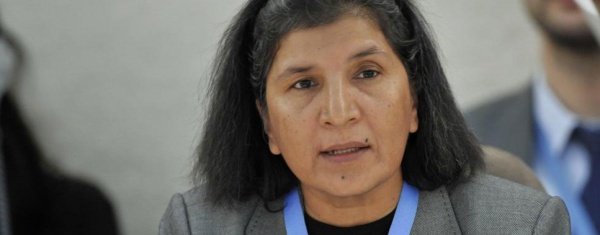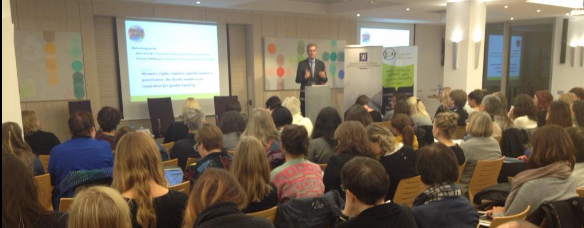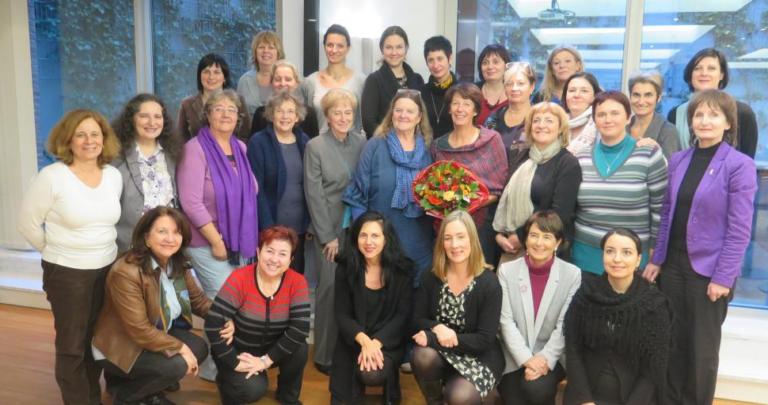[United Nations, New York, 08 December 2011] The active participation of women in public protests witnessed in many parts of the world recently reflect their strong desire to promote social change, including a yearning for the rule of law and human rights, the United Nations independent expert on violence against women said today.
“Moments of political transition provide a unique opportunity to ensure that women participate equally in public life and that their rights in legal and social systems, including the elimination of all forms of discrimination and violence in law and in practice are addressed,” said Rashida Manjoo, the Special Rapporteur on violence against women, its causes and consequences.
“Women have stood together with men in the streets, at the frontline of the struggle for a better future. They have also provided support to the protesters,” Ms. Manjoo said in a statement to mark the annual “16 Days of Activism to End Violence against Women Campaign,” which runs from 25 November, the International Day for the Elimination of Violence against Women, through to 10 December, Human Rights Day.
She said that civilians participating in demonstrations calling for change have often encountered different types of violence, with women paying a high price because political and economic transitions often exacerbate pre-existing discrimination, subordination, and gender-based violence.
Women have experienced sexual abuse, inappropriate touching, invasive body searches, as well as insults and humiliation of a sexual nature. Female human rights defenders, including activists and journalists, and women political candidates have been particularly targeted for politically-motivated purposes, she said.
“So far these acts of violence against women have met with silence from State authorities and impunity for such acts has been the norm,” said Ms. Manjoo.
“Impunity, coupled with existing laws and practices that discriminate against women, will only encourage more violence against women during and after these phases of transition,” she stressed. Failure by authorities to acts on violence against women arose as consequence of States’ reluctance to comply with their obligation to prevent, investigate and prosecute those responsible for the acts of violence.
“The root causes of violence against women in public life are similar to those which underpin violence against them in other sectors of human action.
“They include persisting cultural stereotypes, abuse of religious and traditional practices, patriarchal norms, values and societal structures which have historically relegated women to subordinate roles in both the public and private spheres,” she said.
The gains achieved through change and transformation cannot be consolidated unless women fully participate in public and political life, without fear of violence, Ms. Manjoo added.





